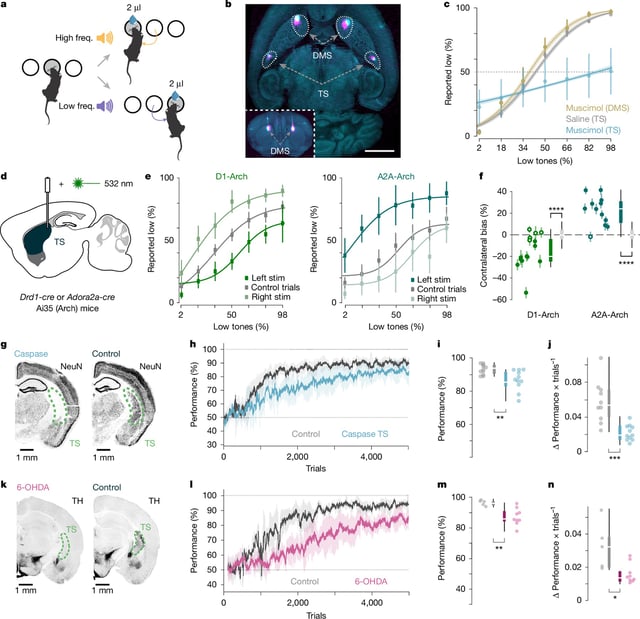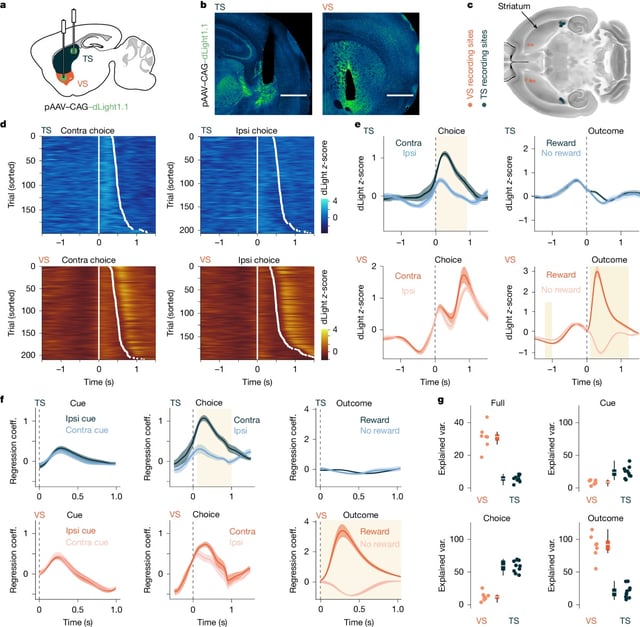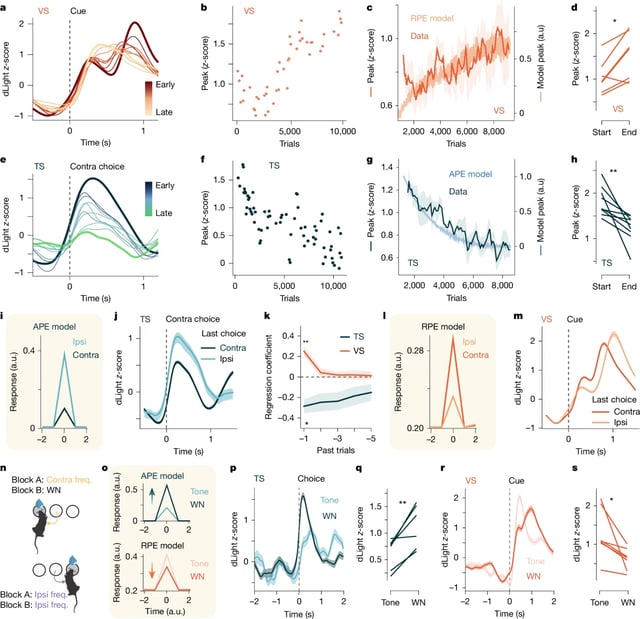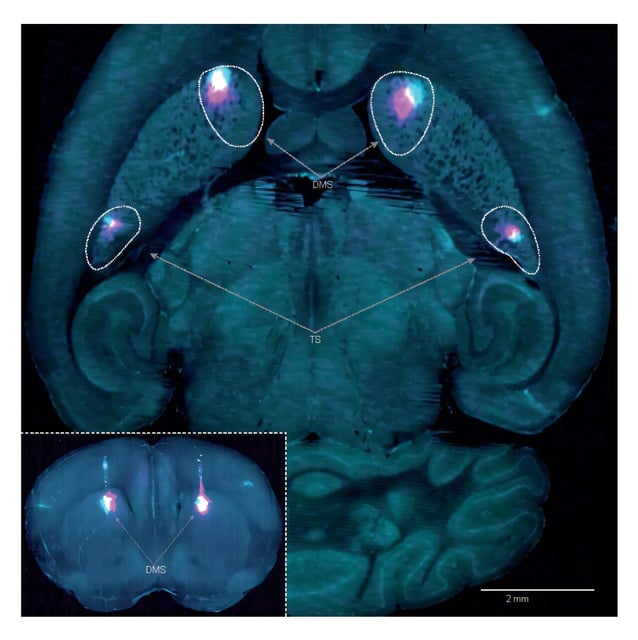Overview
- Researchers at UCL's Sainsbury Wellcome Centre identified a second dopamine signal, APE, which operates alongside reward prediction error (RPE) to drive trial-and-error learning in the brain.
- The APE system enables automatic, habitual actions by bypassing value-based decision-making once a preference is established, freeing cognitive resources for other tasks.
- Experiments in mice showed that lesioning the tail of the striatum, where APE is coded, disrupts habitual behavior and forces reliance solely on RPE for learning.
- The study provides a framework for understanding habit formation, potential therapeutic targets for addictions and compulsions, and new insights into Parkinson’s-related movement deficits.
- Ongoing research is testing whether APE is essential for habit formation and investigating how the APE and RPE systems interact and process learning content.



